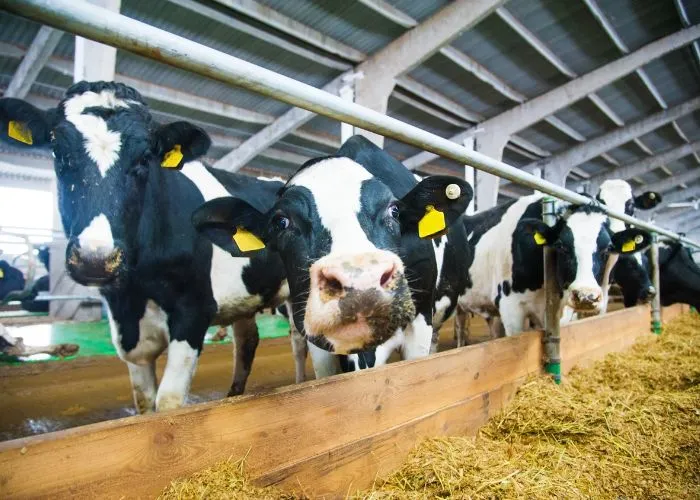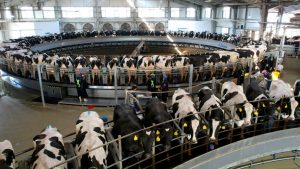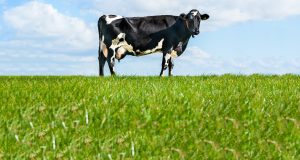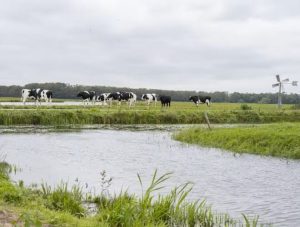
Lactalis-Puleva implements a policy of entering delivery agreements at prices that do not sufficiently cover the farmers’ production costs. This puts dozens of dairy farms at risk and threatens hundreds of jobs.
“We are witnessing the same situation as in Andalucia: a significant price drop has been proposed, and due to the lack of alternatives, people had to accept it. There is price pressure that prevents many companies from covering their production costs,” explains Francisco Fernández, director of the Organisation of Milk Producers (OPL) Agaprol.
Purchase price is lower than the production price
Dozens of members of the national OPL are facing similar pressure and conflict in Catalonia as the Andalucian dairy farmers did a few weeks ago with the French multinational Lactalis-Puleva. This multinational has imposed a purchase price that is lower than the production costs.
300 direct Jobs at stake in Lleida
While the consumer price of milk has increased by more than 40%, this pressure from the dairy industry to maintain industry margins jeopardises the continuity of several dairy farms, which together provide hundreds of jobs. In Lleida alone, this affects 300 direct jobs and another 100 indirect jobs. These circumstances arise as the consumer price for milk has surged by more than 40%, according to data from the National Institute of Statistics (INE).
Milk prices in different supermarkets
On Wednesday, Mercadona sold own-brand cow’s milk for €0.97 per litre, while Puleva milk ranged from €1.29 to €1.60 euros. Meanwhile, Carrefour’s prices were €0.90 for their brand and between €1.00 and €1.99 for the Spanish branch of Lactalis. Dia offered their brand for €0.89 cents and the brand in question ranged from €1.59 to €1.90 euros.
The high consumer price of milk has led institutions such as the Barcelona Food Bank to consider ceasing the distribution of milk to their users due to the costs being too high for their budget.
According to the agricultural organisation COAG, the margin applied by the industry and distribution of cow’s milk between farms and supermarket shelves has reached 67% in recent months. In previous years, this margin has even exceeded 100%.
Forbidden to increase profit margins on milk
“It is currently forbidden to increase profit margins on milk; it is not allowed in the food chain,” warns Rubén Sánchez, spokesperson for the consumer rights organisation Facua. He emphasises the need to investigate whether these price increases are related to rising costs and whether these increases are being passed on to dairy farmers and the primary sector.
Organisations such as Facua have long been urging the Ministry of Agriculture to provide “specific information about food prices from the source to the consumer and about the margins.” However, little is known about the results of the alleged investigations announced in January regarding the development of primary products.
Average production costs of milk
A recent study commissioned by the government of Castilla y León estimated the average production costs of milk at 58.06 cents per litre for the first months of this year in that region.
Moreover, feed and energy costs are currently high. In addition to consuming approximately 15 kilos of feed, the animals also need to consume 25 kilos of straw and/or dry feed to obtain the necessary fibres for their rumination digestive systems. These costs have also increased due to drought, but they have not yet been included in the cost calculation.
“Approximately 58 cents per litre represent the production costs. If the prices fall below that, it puts people in a difficult situation,” says Gaspar Anabitarte, responsible for the dairy sector at the agricultural organisation COAG.
“This is what it is, just accept it”
The union representative draws attention to two aspects of the current developments in the dairy sector. “Milk is expensive in supermarkets, although it is simultaneously the cheapest in Europe, and when they offer you the contract, they simply say, ‘this is what it is, just accept it’,” he explains.
In this scenario, dairy companies subject many dairy farmers to prices that are below the production costs. Some farmers have chosen to close their businesses and send their animals to slaughterhouses, according to sources from the affected Catalan dairy farmers.
























